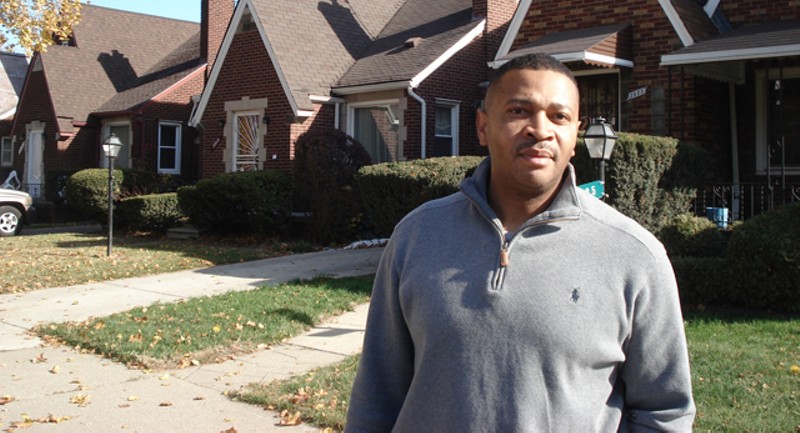State Rep. Tyrone Carter, who has COVID-19, calls for 'mandatory' racial data in testing
State Rep. Tyrone Carter, who tested positive for the coronavirus last month, is calling on health officials to collect and disclose the race of every person who tests positive for the coronavirus.
Carter’s plea comes after Michigan released partial data that showed Black people are disproportionately getting infected and dying from COVID-19. Black people make up 13.6% of the state’s population, but represent 40% of the deaths and a third of the infections. But the numbers may be a lot higher because there’s no data on 35% of those infected and 24% of those who have died.
“Once this is over, the numbers will rise higher, and it will be the African American community leading the way,” the Democrat from Detroit said in a call with reporters Thursday, adding that collecting racial data should be “mandatory."
“People need to know,” Carter said. “We need to have real data.”
Also on the call was Pontiac Mayor Deirdre Waterman, who said the racial breakdowns are critical “so we can understand this and treat this segment of the population.”
Waterman and Carter also said the state needs more testing kits because many infected people aren’t getting tested. The testing shortage has made it difficult for public health officials to target hotspots and identify infected people.
“A lot of people aren’t able to get tested and have the symptoms,” Carter said.
Waterman added there are “nowhere near the number of test kits that we need. It has been far to slow of a process.”
Most states have not released data by race. But those that have disclosed the data — Illinois, Louisiana, North Carolina, and South Carolina — have reported a disproportionately high ratio of Black residents to white residents who have tested positive for the virus.
Public health officials say Black people have higher coronavirus mortality rates because of disparities in the health care system. Generations of racist housing and economic inequality have trapped many Black people in impoverished neighborhoods without adequate resources. In Detroit, where more than a third of its population is impoverished and many are uninsured or underinsured, residents are far more likely to have pre-existing health conditions like diabetes, asthma, high blood pressure, heart disease, and obesity.
Health officials also say the infection rates are higher because contagious diseases often spread faster in lower-income areas because many people rely on public transit, live in close quarters, and have jobs without paid sick days. A disproportionate number of lower-income residents also work in the service industry, where employees are in close contact with the public.
“We are still in the middle of the storm,” Carter said. “It is really impacting people I know in my community.”
U.S. Rep. Rashida Tlaib, D-Detroit, is among the members of Congress calling on states to track racial data so that public health officials can address the health care inequities.
You can read more about the coronavirus and race in this week's Metro Times cover story.
Stay on top of Detroit news and views. Sign up for our weekly issue newsletter delivered each Wednesday.


